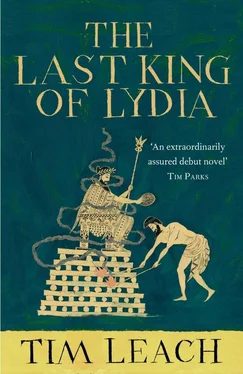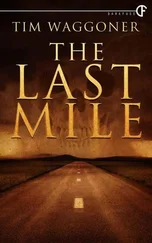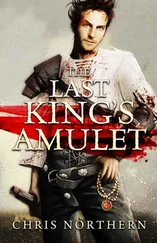Tim Leach - The Last King of Lydia
Здесь есть возможность читать онлайн «Tim Leach - The Last King of Lydia» весь текст электронной книги совершенно бесплатно (целиком полную версию без сокращений). В некоторых случаях можно слушать аудио, скачать через торрент в формате fb2 и присутствует краткое содержание. Год выпуска: 2013, ISBN: 2013, Издательство: Atlantic Books Ltd, Жанр: Исторические приключения, на английском языке. Описание произведения, (предисловие) а так же отзывы посетителей доступны на портале библиотеки ЛибКат.
- Название:The Last King of Lydia
- Автор:
- Издательство:Atlantic Books Ltd
- Жанр:
- Год:2013
- ISBN:9780857899200
- Рейтинг книги:5 / 5. Голосов: 1
-
Избранное:Добавить в избранное
- Отзывы:
-
Ваша оценка:
- 100
- 1
- 2
- 3
- 4
- 5
The Last King of Lydia: краткое содержание, описание и аннотация
Предлагаем к чтению аннотацию, описание, краткое содержание или предисловие (зависит от того, что написал сам автор книги «The Last King of Lydia»). Если вы не нашли необходимую информацию о книге — напишите в комментариях, мы постараемся отыскать её.
The Last King of Lydia — читать онлайн бесплатно полную книгу (весь текст) целиком
Ниже представлен текст книги, разбитый по страницам. Система сохранения места последней прочитанной страницы, позволяет с удобством читать онлайн бесплатно книгу «The Last King of Lydia», без необходимости каждый раз заново искать на чём Вы остановились. Поставьте закладку, и сможете в любой момент перейти на страницу, на которой закончили чтение.
Интервал:
Закладка:
‘I know,’ Cyrus said. The king’s palm opened, and a flash of light against metal passed through the air. Croesus caught it and looked down.
From the face of the coin the Lydian lion looked back at him. He ran his thumb over its surface, a single touch enough for him to know if one or a thousand hands had held the coin before him then cocked his head, confused.
‘This is new,’ he said. ‘Newly minted. I don’t understand.’
‘I considered having the new coins marked with the emblem of my empire,’ Cyrus said. ‘But I think I’ll keep them as they are.’ He smiled at Croesus. ‘What do you think of that?
Croesus studied the coin, sitting heavy in his palm as if he were a god holding the entirety of the cosmos in his hand. Perhaps this was what he had sought before, when he stood and dreamed in his treasury all those years ago. The dream of an empire that lived only in the mind, that had no borders or boundaries or kings to rule over it. A kingdom of wealth, unconquerable and eternal. The ultimate ruler of men.
‘Thank you,’ Croesus said.
Later, they sat at a table, deep within the world of the palace tent. Cyrus clapped his hands, and attendants pulled on the ropes that were coiled in the corners of the chamber. The roof of cloth rolled back, and the stars shone above them, distant and inviting, like the lights of an unconquered city.
Servants brought wine, and the two men sat and drank in silence for a time. Cyrus stared into the distance. Croesus sent the coin dancing over his knuckles like a street performer.
‘Isocrates. . he is a good slave, isn’t he?’ Cyrus said at last.
‘Yes, he is. Worth more to you than I am.’
‘You value yourself too lightly, Croesus.’
‘I don’t think I’m worth much as your advisor.’
‘No?’
Croesus shook his head. ‘I think I am here to remind you what a king must not do. A lesson in hubris.’
Cyrus laughed. ‘But you have some interesting thoughts. Your answer for Lydia, for instance.’
‘I am still surprised you agreed so easily.’
‘To your unlikely plan?’
‘Yes.’
‘I lose nothing if it fails. We will do as Harpagus wants. But to pacify a nation with music and fine fabrics? It has never been done before. That is something, don’t you think?’
‘Ah. Now I do understand you. At least in part.’
‘What understanding do you lack?’
‘Why a man as happy as you wants to build an empire.’
‘A king must have his mysteries.’ He smiled. ‘Perhaps I will tell you some day.’
‘Perhaps.’ Croesus drank. ‘Your wife is very beautiful.’
‘She is my favourite.’
Croesus ran his thumb over the edge of the cup, letting the red drops soak into the whorls of his skin. ‘How many do you have?’
‘Only three so far.’
‘It never felt right to me, taking more than one wife at a time.’
‘If I can love more than one woman, why not marry more than one? Desire is not a limited resource, Croesus.’
‘Not for you, perhaps. The rest of us hoard what we can, and dole out our love piecemeal, like stingy merchants. It seems Cassandane would rather you loved a little less broadly.’
‘I will not be possessed by anyone, Croesus, least of all a woman. Isocrates has a wife, doesn’t he?’
‘Yes. Maia. She has been a good friend to me.’
‘Beautiful?’ Cyrus said.
‘No. Homely. A peasant. She smells of rosemary and mint.’
‘I see. The smell of the kitchens is off-putting to you?’
‘No. The smell of the dead,’ Croesus said, thinking of Atys.
‘The smell of the dead?’
‘They wrap the dead in rosemary and mint. You do not know this?’
‘You have buried more family than I have, Croesus.’
‘That is true.’
They shared a silence.
‘Would you like a woman, Croesus?’
‘What?’
‘A woman. Or a boy, if that is your taste. I could arrange it for you. As a reward, for your good service.’
Croesus hesitated. ‘No,’ he said.
‘No? How old are you, Croesus?’
‘Fifty. An old man.’
‘Not old enough to forgo the pleasures of a woman. I don’t understand.’
He thought for a time. ‘What have I to give to a woman?’ he said.
Cyrus tilted his cup and turned it slowly, watching the last drops of wine circle their way around the bottom. ‘Do you have a favour that I can grant, Croesus?’
‘Yes,’ Croesus said. ‘Will you let me see my son?’
Cyrus paused and looked at him. His face was unreadable.
‘Of course,’ the king said. ‘And I will ensure that you can see him when you want, from now on. Will you accept that, as a reward for two years’ service?’
Croesus blinked at his tears, sharp and sudden. ‘Thank you,’ he said.
He looked away, and listened to Cyrus disappear to his bedchamber, somewhere even deeper within the labyrinth of cloth that few were permitted to see. Then he stood and followed a guard out of the maze, and towards a place where no other man would wish to go.
It was a small gathering of pale-coloured tents, ringed round with rows of black cloth staked to the ground, and separated from the main encampment by a clear expanse of unoccupied land. Every man who walked past did so quickly, head down, muttering a prayer and reaching for any personal charm he carried. None wanted to linger near the place where the sick were taken, and the wounded went to die.
Some had been dragged there from the battlefield, hacked and bleeding from a dozen wounds, and later recovered, knotted with scars like blessings from the Gods. Others would arrive with the slightest of wounds, a puncture from a nail or a bite from a dog, laughing at their clumsiness. They would burn with fever and die in days. The surgeons who worked in these tents were all too aware of the uncertain science they practised. Shunned by the rest of the camp as traders in death, they were solitary, and darkly superstitious.
Croesus felt a quickening fear as he approached that place where death stood close by, capricious and unpredictable. He made his way past the tents that held the sick and the wounded, to the place that was looked on with fear even by those who lived and worked there. It was a single white tent, set apart from the others: the home of the insane.
There were not many, only a few dozen. Some had survived wounds to the head on the battlefield, others had been struck down by apoplexy or fever, and had awoken with half their minds gone. There were others who had suffered no injury at all, but the slightest sound of war — the creaking of leather armour, the thud of a spear against the ground or a bowstring pulling taut — would send them into a shaking panic that took hours to coax them from. Perhaps there were, hidden amongst them, some who merely feigned madness, preferring to be imprisoned than to chance their lives in war, seeking to grow old amongst the insane.
It had been many months since Croesus had seen Gyges. He could visit only when he had coin with which to bribe the guards, or when some other favour or opportunity presented itself. He made his way past the slow, shuffling figures of the men whose minds had been broken by war, and sat down beside his son.
Gyges had changed little. Croesus did not understand how it was that his son, who had resisted any attempt to restrict his movements in the palace, was able to stand being confined to this tent, and yet somehow Gyges seemed more content here than ever he had in Sardis. He sat next to his son in silence for a time, struggling, as always, to know how to begin.
‘Cyrus will let me visit as often as I like now,’ he said at last. ‘How often should I come, do you think?’
Gyges did not respond.
‘I have pleased the king,’ Croesus said slowly. ‘Though I think I made an enemy of Harpagus. He is angry that the king took my advice and not his. But what can he do while I have the king’s favour?’
Читать дальшеИнтервал:
Закладка:
Похожие книги на «The Last King of Lydia»
Представляем Вашему вниманию похожие книги на «The Last King of Lydia» списком для выбора. Мы отобрали схожую по названию и смыслу литературу в надежде предоставить читателям больше вариантов отыскать новые, интересные, ещё непрочитанные произведения.
Обсуждение, отзывы о книге «The Last King of Lydia» и просто собственные мнения читателей. Оставьте ваши комментарии, напишите, что Вы думаете о произведении, его смысле или главных героях. Укажите что конкретно понравилось, а что нет, и почему Вы так считаете.












